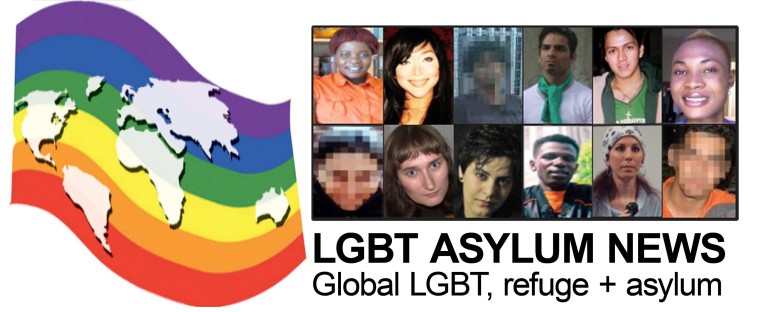By David Taffet
Yousif Ali, 24, and Nawfal Muhamed, 20, are safe in Houston. But life is difficult.
The two have been denied food stamps. Jobs are not easy to find. The Sharpstown neighborhood where they live is dangerous. Neither man speaks English well. And the American relief agency that helps refugees has no services for gay men.
But all that aside, the two gay Iraqi refugees have asylum status and are safer here than they were in Iraq.
In Baghdad, Ali was kidnapped and raped. His boyfriend was murdered.
“Kidnapped many times,” Ali said. “I tried to escape. They put knife in my foot.”
He blamed the Mahdi Militia.
After escaping, he said, he called an Iraqi LGBT group in London. They told him to go to Syria and contact the United Nations. He made it to Syria by bus.
He said there are checkpoints every mile of the trip.
“If they think you are gay, they tell you ‘Go out from the car.’ Take them to unknown place and disappear,” Ali said.
He said that life in Iraq is difficult for everyone because of the war. But for those who are gay, life is intolerable.
Living on savings in Syria, Ali rented a room. He met Muhamed, who had escaped to Damascus when he was 16. He also wanted to move to the west, but was afraid to go to the U.N. office to request refugee status. Although his life was in constant danger in Iraq, he was afraid of U.N. forces that he thought would abuse him if he told them he is gay.
Muhamed’s parents were dead. His brother and sister know he is gay but he is not close to them. He has a boyfriend who is still in Iraq. In Syria he had another boyfriend who is also still there, but he said that one is bisexual and felt safe.
Ali’s family does not know he’s gay. They think a bomb caused the wounds to his foot and that he came to the United States to receive medical treatment. They do not know about the kidnappings.
Ali was granted refugee status first and given asylum in the United States. About seven months ago, he was given a plane ticket through London to Houston. He said he is paying back the airline fare, $35 a month. Muhamed arrived a month later. In his application, Muhamed said he had a friend in Houston. He begged them to send him to Texas, but instead he was given a ticket to Nashville.
“Catholic Charities and U.N. separated us,” Mohamed said. He said that their refugee services only help families, not singles.
Bruce Knotts is the executive director of the Unitarian Universalist United Nations office. He said theirs is the only faith-based U.N. office with full-time staff advocating for LGBT rights. He is familiar with Ali and Muhamed’s case.
Once certified by the United Nations High Commissioner for Refugees, they were resettled, Knotts said. The United States has accepted those seeking asylum based on sexual orientation since a law passed during the Bush administration that was introduced by Rep. Barney Frank.
Knotts said that the United States takes in more refugees than all other countries combined, but that Canada does a better job taking in LGBT asylum-seekers.
Catholic Charities provides many of the services in this country for refugees and is funded through the federal government. Their Web site says they provide “Apartment rent and furnishings.” Ali said that their Iraqi neighbors in Houston got both. He was given a bare apartment. Knotts agrees that Catholic Charities offers families services and provides for basic needs that they have denied the gay men.
When Muhamed arrived in the United States, he was assigned a straight roommate in Nashville. So he contacted Ali and bought a bus ticket to Houston where the two were reunited.
Life in Houston has been difficult. Ali said that he was given food stamps when he first came to this country but then the food stamps were cut off and does not know why. He has reapplied.
The only job he has gotten was working in a warehouse two hours a day. The job was a long drive from his apartment, and it cost more to commute than he was being paid. He’s looking for full-time work.
Knotts explained that the food stamps were cut off when Ali got the part-time job. He said one of the things the men need is someone who can help walk them through the system and advise them about getting job training and full-time work.
Muhamed said he would like to find employment but he has never worked. “Only high school,” he said. Ali explained that Muhamed has never worked before. While in high school he was kidnapped and raped and fled to Syria where he lived for four years and was not allowed to work.
Their Houston neighborhood is dangerous. Sharpstown has a large Iraqi immigrant population. Knotts said the two men are still living among the same people who tormented them in Iraq. At the Creating Change conference in Dallas last weekend, Knotts said they connected the two men with a Unitarian church in Houston and the Houston GLBT Community Center.
Knotts said, “They need friends.”
He emphasized they are here legally and need help applying for their green cards because both are eligible to work. They need someone to help them access the language classes, vocational training and other services the federal government funds Catholic Charities to provide to refugees. And, he said, they need to move to a gay-friendly neighborhood.


![Reblog this post [with Zemanta]](http://img.zemanta.com/reblog_e.png?x-id=d8564bc3-6f30-42d8-8b95-fe7480b6850c)






 Join our page
Join our page


0 comments:
Post a Comment